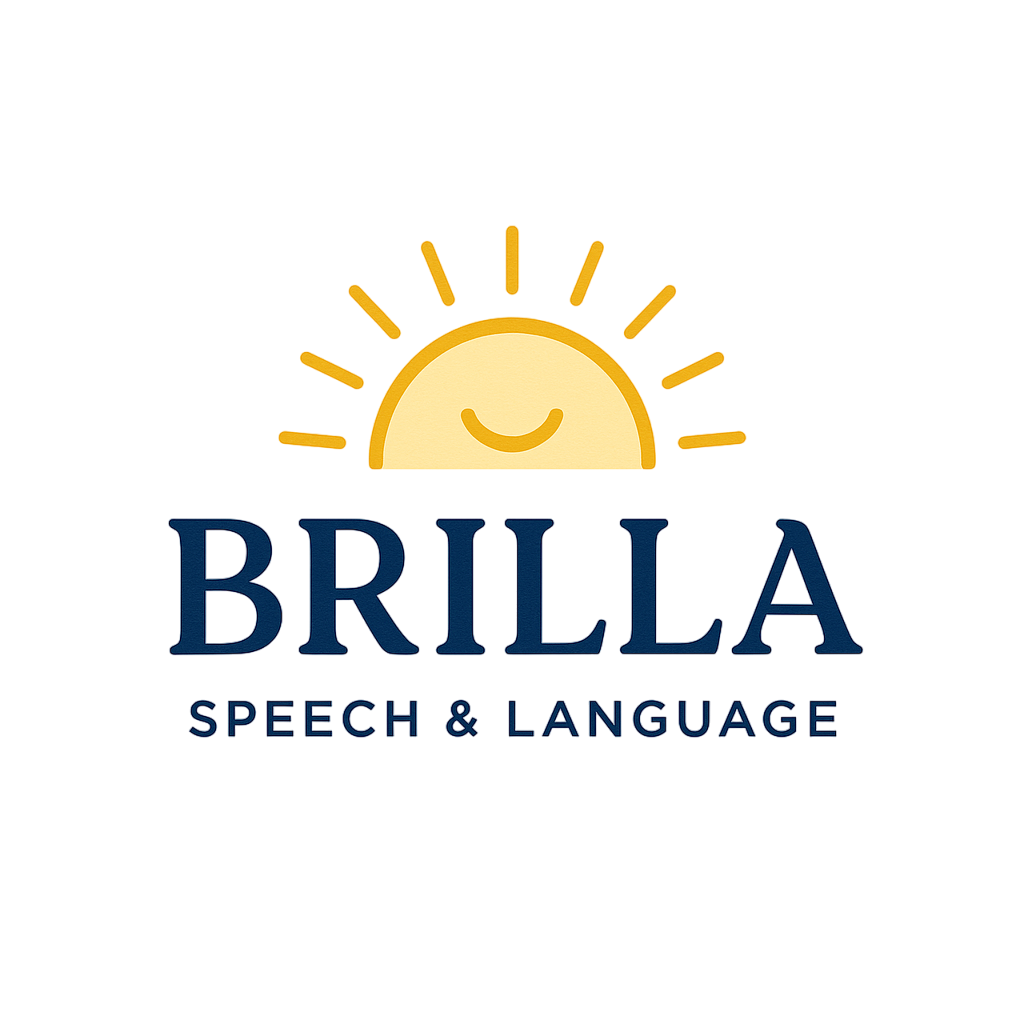Developmental Milestones: What to Expect
Every child grows at their own pace, but there are general communication milestones to help you understand what’s typical at different ages. If your child is developing differently, it doesn’t necessarily mean there’s a problem - but it might be a good idea to explore supportive services. For more information, visit ASHA’s communication milestones.
By 12 months:
Babbles with a variety of sounds (e.g., “baba,” “gaga”)
Points to things they want
Responds to their name
Understands simple words like “no” and “bye-bye”
Uses simple gestures like waving or reaching
Meaningful use of first word (e.g., “mama,” “dada”)
By 18 months:
Says around 10-20 words
Understands simple directions like “come here”
Uses gestures and words to ask for help or show what they want
Tries to imitate words or sounds
Points to some body parts
Comprehension is higher than verbal expression
By 2 years:
Says about 50 or more words (toys, animals, food, body parts, etc.)
Starts to combine two words (e.g., “more juice,” “mommy go”)
Follows simple directions
Points to objects or pictures when named
Uses words to ask for help
Speech may not always be clear (e.g., “du” for “shoe” or “dah” for “dog”)
By 3 years:
Speaks in short sentences (3-4 words)
Asks lots of questions
Speech is understood by familiar adults most of the time
Understands most common words and concepts
Uses -ing verbs (e.g., “running,” or “eating”)
Correctly produces most vowels in words and p, b, m, h, w, and n in words.
By 4 years:
Speaks in longer sentences (4+ words)
Can tell simple stories
Speech is mostly understood by unfamiliar people
Understands simple “wh” questions (who, what, where)
Correctly produces t, k, g, f, and y in words.
Says all syllables in a word.
By 5 years:
Communicates clearly with most people
Uses complex sentences and a variety of words
Can describe past events and tell simple stories in order
Understands time concepts like “before” and “after”
Imitates reading/writing from left to right
Follows simple directions and rules to play games.
Self-Check Quiz for Parents
If you’re unsure whether your child might benefit from speech therapy, take this quick self-check:
Does your child have fewer words than expected for their age?
Is your child frustrated when trying to communicate?
Does your child repeat long phrases or scripts but use fewer spontaneous words?
Does your child have difficulty following directions or understanding language?
Do unfamiliar people often have trouble understanding your child’s speech?
Has your child stopped using words or lost language skills they once had?
Are you feeling unsure or concerned about your child’s communication development?
If you answered “yes” to one or more of these questions, it may be helpful to schedule a consultation. Early support can make a big difference, and we’re here to guide you every step of the way.
Frequently Asked Questions
-
We work with toddlers, preschool, and early school-age children (18 months old until 8 years old).
-
During the phone consultation, we will take time to discuss any concerns or questions you may have regarding your child’s speech and language development. We will also go over the evaluation process and what you will need to do prior to the evaluation. We believe that establishing a good relationship with the family initially helps create a good foundation for your child in therapy.
-
Services are provided primarily in the clinic. Mobile services to daycares, schools, and ABA centers are on a case-by-case basis.
-
We accept Blue Cross Blue Shield of Texas, HSA/FSA cards, and private pay clients.
-
Yes! If you have a copy of your child’s evaluation and IEP, we can provide therapy outside of school hours and over the summer.
-
Speech therapy sessions are usually scheduled for 30 minutes, 1 to 2 times per week.
-
Every child is different, so every child needs a unique approach to speech therapy for children.
For preschool children, speech therapists use mostly play based interventions.
This is because young children just don’t have the attention span or the cognitive skills. Additionally, research shows that children learn best through play.
For school-age children, we use a combination of these play based interventions, as well as table based strategies.
The goal is to help your child, but it’s also to make sure their sessions are fun. After all, kids are more likely to do something if they actually like doing it.
-
Every child is unique. Some children make rapid progress and need only a short period of therapy, while others may require ongoing support to build and maintain communication skills.
-
A referral is not required; however some insurance providers do. We recommend contacting your insurance company to confirm if a referral is required per your plan.
-
No. For safety reasons, we require that parents/guardians stay on the premises during the entirety of the child’s session.
